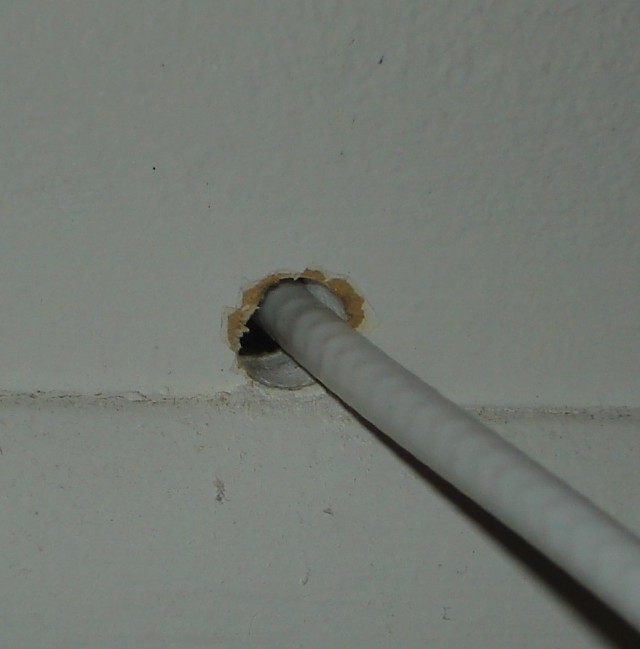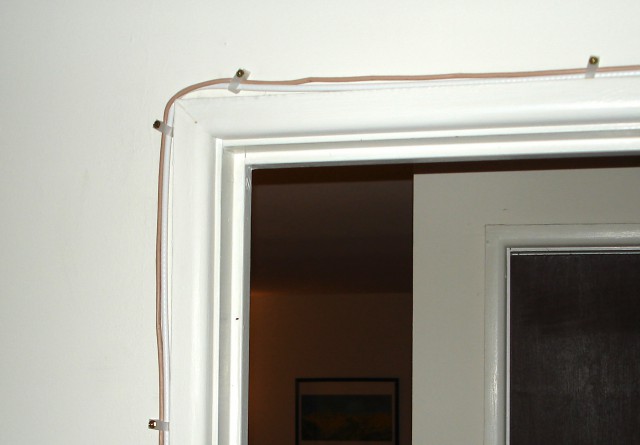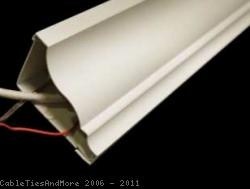 Charter Cable customers in Mesa County, Col., experiencing the latest service outage from the cable company were told to “quit whining” and “check your attitude” when they called Charter’s customer service line to ask when the problems would be fixed.
Charter Cable customers in Mesa County, Col., experiencing the latest service outage from the cable company were told to “quit whining” and “check your attitude” when they called Charter’s customer service line to ask when the problems would be fixed.
“If Mesa County didn’t whine so much, maybe something would be done,” one Charter representative told a customer in Grand Junction.
“Talking to [Charter] is like trying to put socks on an octopus,” said Dillard Jenkins.
Stop the Cap! reader June Jones found that to be true when she complained to Charter about not being able to reach 911 on her Charter phone during the recent outage.
“I was unhappy after the representative literally told me ‘that’s not our problem, get a cell phone like everyone else’,” Jones said. “I was so shocked being talked to that way I didn’t know what to say. I am 76 years old and in all my life I have never heard a company use that tone with me. The next thing I heard was, ‘is there anything else? I didn’t think so’ and she just hung up.”
Alex Danders waited on hold 35 minutes to speak to a representative about the Charter Internet outage at his business. He later wish he hadn’t.
“All I wanted to know is if they knew when it was going to be fixed and the guy told me ‘to check my attitude’ and later told me to ‘go screw yourself’ and disconnected me,” said Rodriguez.
Charlotte Conboy is a Charter customer who has had trouble with Charter for the last six months. Her two home-based businesses have suffered from no Internet access during frequent outages.
“If […] their company [had] issues [affecting their offices], they would have it fixed right away” said Conboy. “They say that’s beside the point and I get hung up on.”
 A county official calling to find out when repairs would be completed was told, “we have excellent service and do not appreciate your complaint for one incident of interruption of service.”
A county official calling to find out when repairs would be completed was told, “we have excellent service and do not appreciate your complaint for one incident of interruption of service.”
The latest outage took out Internet service for schools across Mesa County for several hours two days in a row. Teachers scrambled to change their lesson plans to work around the outages.
“I’ll tell you the last couple of weeks the last three weeks or so I’ve been out talking to people, they’re furious, people are upset I mean this is our primary communications,” commissioner Scott McInnis told KKCO. “In exchange for using the right of way we expect them to deliver a service that the reasonable person would say ‘hey the quality of this service is good’ and we expect that [they will] deliver that.”
[flv]http://www.phillipdampier.com/video/KKCO Grand Junction County Commissioners get involved with Charter issues 1-15-15.flv[/flv]
KKCO in Grand Junction reports that hundreds of area residents are outraged about ongoing problems with Charter Cable and the rude responses they get when they call Charter’s customer service line. (3:23)
The ongoing problems with Charter Cable and the company’s surly responses to customers prompted a stern letter from the Mesa County Board of Commissioners to Charter Communication’s senior manager of Government Relations. They plan to meet with senior Charter officials today to discuss the matter.
Dear Mr. Rasmussen;
Today we have received multiple complaints from businesses and residents of Mesa County regarding interruption of Charter’s Cable Service. Currently, District 51 Schools are without service and we have been informed that service has been down for several hours.
Please note that this is unacceptable for Charter subscribers who feel that they can go to no one for resolution. When calling the customer service line they are told multiple ‘reasons’ for the outage, including responses such as ‘we have excellent service and do not appreciate your complaint for one incident of interruption of service,’ and ‘If Mesa County didn’t whine so much, maybe something would be done.’
Timely resolution of this issue would be prudent. We are requesting immediate and prompt dispatch of a response team to fix the system post haste; as well as a heightened awareness of the frustration Mesa County subscribers are having with your Customer Service Department. Good faith compliance is implied with the franchise agreement. We have also been informed by the City of Grand Junction that they have also heard from frustrated citizens regarding this issue.
Sincerely,
Mesa County Board of Commissioners
Rose Pugliese, Chair
John Justman
Scott McInnis
[flv]http://www.phillipdampier.com/video/KKCO Grand Junction School district loses phones and internet again 1-16-15.flv[/flv]
The entire Mesa County school district lost Internet access for a second day after another Charter Cable outage. KKCO reports parents and staff are concerned. (3:08)
Thanks to reader June Jones for tipping us about this story.


 Subscribe
Subscribe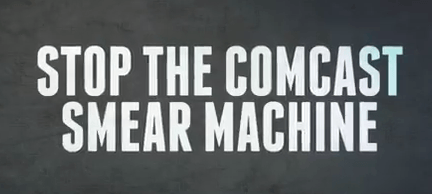 A conservative group has launched an assault on the Comcast-Time Warner Cable merger, accusing the cable company of cozying up to the Obama Administration and the political left in its news coverage to win corporate favors.
A conservative group has launched an assault on the Comcast-Time Warner Cable merger, accusing the cable company of cozying up to the Obama Administration and the political left in its news coverage to win corporate favors.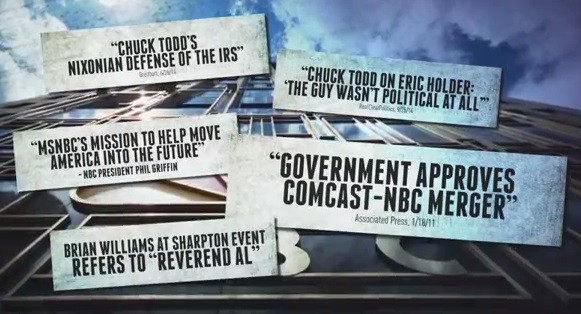 “We intend to demonstrate to Comcast/NBC/Universal that [conservatives] have not thrived for six decades – we have not come all this way – just to cede our national and, indeed, global victories for the cause of freedom to a group of grasping corporate operatives seeking commercial and political power. So, the focus of the conservative movement needs to be not on the politicized and partisan faces of NBC or the hired slanderers at MSNBC – criticizing them just makes them more important than they are – but on the corporate ‘suits in the suites’ who are the truly culpable parties.”
“We intend to demonstrate to Comcast/NBC/Universal that [conservatives] have not thrived for six decades – we have not come all this way – just to cede our national and, indeed, global victories for the cause of freedom to a group of grasping corporate operatives seeking commercial and political power. So, the focus of the conservative movement needs to be not on the politicized and partisan faces of NBC or the hired slanderers at MSNBC – criticizing them just makes them more important than they are – but on the corporate ‘suits in the suites’ who are the truly culpable parties.” Alaska’s largest cable company today unveiled changes to its Internet plans, ditching surprise overlimit fees in favor of a speed throttle.
Alaska’s largest cable company today unveiled changes to its Internet plans, ditching surprise overlimit fees in favor of a speed throttle.


 The proposed bill also carefully protects existing providers from pressure to upgrade their networks.
The proposed bill also carefully protects existing providers from pressure to upgrade their networks.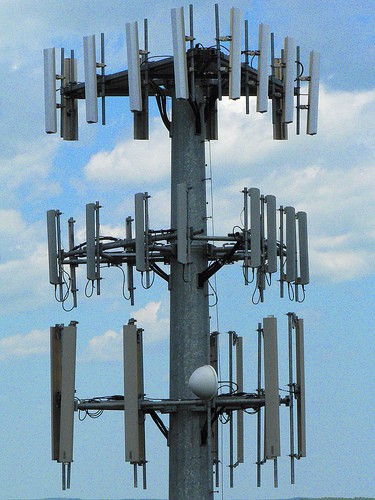 The group urged the Missouri legislature to reject the bill.
The group urged the Missouri legislature to reject the bill. Verizon Communications has stepped up efforts in New York City to get intransigent landlords to let the company into their buildings to bring FiOS fiber optics to tenants, even as some property managers accuse Verizon of ignoring earlier requests to get the service.
Verizon Communications has stepped up efforts in New York City to get intransigent landlords to let the company into their buildings to bring FiOS fiber optics to tenants, even as some property managers accuse Verizon of ignoring earlier requests to get the service.